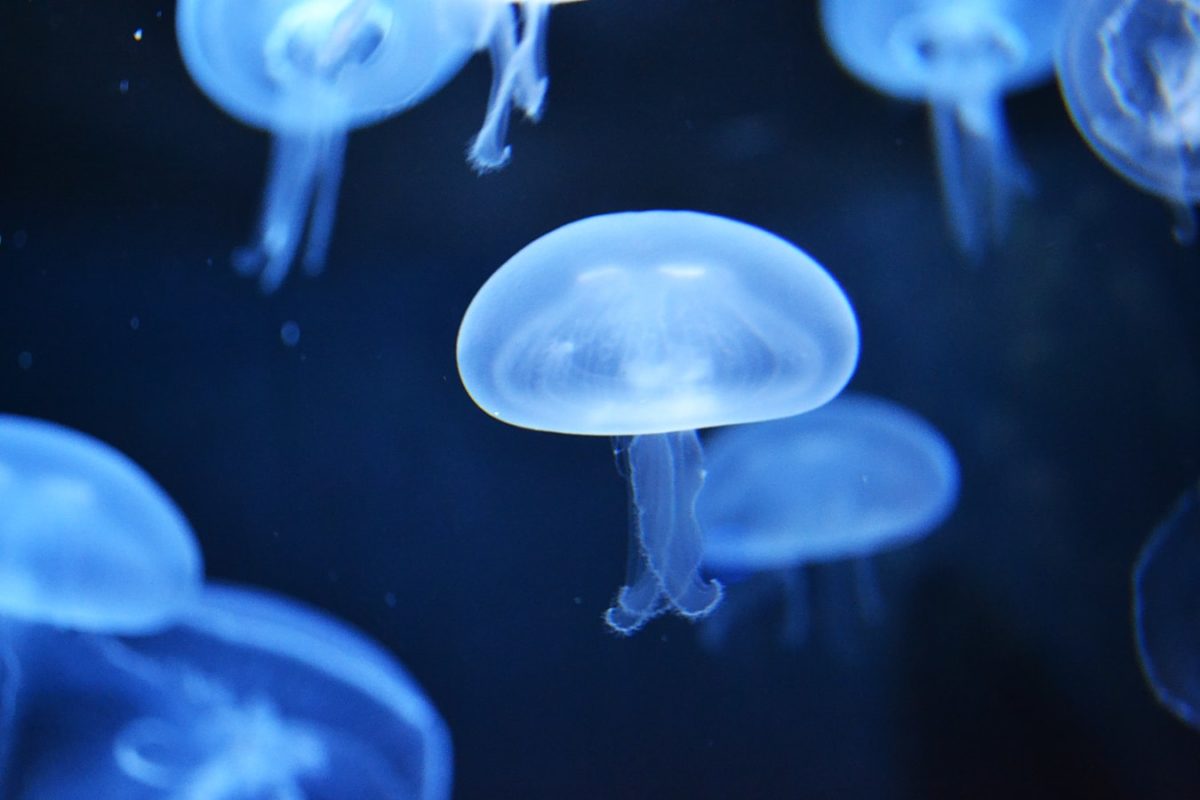If you plan on spending time in the Florida Keys this spring or summer, it would be logical for you to be concerned about jellyfish. The most common type of jellyfish that you’ll find here is the Moon Jellyfish. They don’t have a very strong stinging power, so it won’t penetrate the skin. However, if one brushes up against you, then what you will notice is a slight stinging feeling. Don’t panic! This is something that doesn’t happen very often and it won’t cause you to cancel your day in Siesta Key Beach. It is more of an irritant than anything.

When is Jellyfish Season?
In the Florida Keys, the jellyfish season is typically between late August through April. It is easy to avoid them if there aren’t too many around since they usually travel with the water currents. Those who have been stung often complain of a burning sensation, tingling, numbness in the infected area, and their skin turning purple or red. In severe cases, you may experience dizziness, nausea, vomiting or difficulty breathing.
This is rarely, if ever, something that is experienced by someone stung by a Moon Jellyfish.
How to Avoid Getting Stung in the First Place
You can avoid being stung or having one brush up against you by moving out of their way if you see them. They are beautiful to look at and we realize that it might be tempting to get up close to take a closer look. However, just keep in mind that while you are attempting to get that perfect picture, one of them could swim toward you without you even realizing it. Stay alert when it is jellyfish season so that you can avoid being stung. If there is a high volume of jellyfish in the water, perhaps take a quick break to enjoy lounging on the white sand beach in Siesta Key.
- Avoid getting into an area where jellyfish have been reported or known to swim
- Wear protective clothing (wet suits, spandex, dive skins, pantyhose)
- Wear shoes on the beach
- Don’t touch a jellyfish that has washed ashore
- Avoid coming into contact with blobs
- Swim near a lifeguard since they can alert you of jellyfish that have been spotted
- Get out of the water if you find it difficult to maneuver around them
The key to avoid being stung or brushing up against a jellyfish is to be mindful of them so that you can take the necessary precautions.

What to Do for a Jellyfish Sting
The thought of being stung by a jellyfish shouldn’t prevent getting into the water near any of our Siesta Key condos. Jellyfish often sneak up on unsuspecting victims while they are enjoying themselves. Therefore, many visitors want to know how to treat a jellyfish burn if they are stung. Some pretty silly things are recommended, but there are also some very practical ways to treat a jellyfish sting, which include:
- Immediately get out of the water if you have been stung
- Rinse the area in vinegar, but DO NOT rinse in freshwater
- Remove tentacles with tweezers
- Once tentacles have been removed, soak the area in hot water for up to 20 minutes. The water should be hot but not scalding
- Relieve irritation by applying mild hydrocortisone cream or taking an oral antihistamine to reduce itching or swelling
Here are some things that you may have been told that you should do when you have been stung. However, we suggest that you AVOID doing them:
- Applying baking soda to the area
- Apply a pressure bandages
- Use alcohol on the area
- Use urine on the infected area
- Rinsing with fresh water
- Rub it with a towel
- Scraping the stingers out
If you want to know how to fix a jellyfish sting, then we would suggest that you follow the advice above and avoid the things to beware, as they simply contribute to the level of irritation. You don’t have to stay close to your Siesta Key beachfront rental to avoid coming in contact with jellyfish; just be mindful of how to avoid them.



